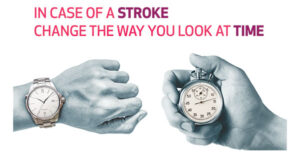What is HASU? Why is it important?
HASU stands for Hyper Acute Stroke Unit which can mean the difference between life and death in most cases. These units bring specialists from different fields, experts in their field, and the latest medical technology in terms of equipment and instruments under one roof and will aim to provide complete treatment for stroke victims, 24 hours a day, thereby reducing mortality rates and avoiding long-term disability.

Till now, the response to a stroke incident has been poor. There are many reasons for this, which include:-
- Poor awareness – People are not aware of stroke symptoms and often call emergency services too late.
- Poor response – The unavailability of a quick, well trained and experienced emergency response unit that can assess and control the situation at once.
- Poor facilities – The unavailability of latest technology and experienced specialists leads to less them optimal care and communication.
What should one expect in a HASU?
A HASU team will typically consist of:-
- A stroke specialist
- Interventional Radiologist
- Neurosurgeon
- Rapid Neuro ICU intensivist
- Dedicated stroke unit
- Trained nursing support
- Advanced equipments
What is their role?
- Initial assessment – As soon as the patient is admitted, they will be rapidly assesses by the specialist HASU team.
- Immediate treatment – Immediate MRIs and scans will be taken and the depending on the results, treatment for the stroke is started.
- Around the clock care – Because of sudden and abrupt changes in conditions of stroke victims, they will need to be monitored 24 hours a day for as long as the HASU team deems necessary.
- On call specialists – The multidisciplinary specialist team will be on call 24 hours a day, 7 days a week till the patient is stable.
- Interdepartmental consults – The HASU team will oversee the patient’s condition and co ordinate between different departmental consults as and when needed.
Stroke care around the world
Response to a stroke is crucial. During a stroke, due to a clot or blockage, oxygen to the brain is reduced and this can cause anything from memory loss, to paralysis. Medical centers and hospitals around the world have only recently realised the importance of a dedicated medical response for a stroke victim.
The London Hyper Acute Stroke Unit (HASU) model shows that faster access to tests and specialist treatment, and the associated efficiencies, have improved outcomes for stroke patients and helped to save many lives.
In Australia, The Acute Stroke Services Framework (2015) has passed a recommendation that all hospitals admitting 75 or more patients with stroke per year should have a stroke unit.
In the USA, they have just started the MSU or Mobile Stroke Unit, in Houston Texas, and are trying to implement it elsewhere.
And in India… at Kauvery Hospitals.
Taking giant leaps in creating a center of medical excellence, Kauvery Hospitals is centralising stroke treatment, specialist doctors and advanced medical technology under one roof by being the first hospital in India to provide a Hyper Acute Stroke Unit in Chennai.
This move would help ensure that stroke patients have access to immediate response, rapid diagnosis and treatment. At Kauvery Hospitals, we have specialist staff and services specifically for stroke and our after care is aimed at improving outcomes for people who have suffered a stroke.
During their stay at Kauvery Hospital, all necessary tests will be done with the latest in medical equipment as well as consults with experienced and well known specialists, all of whom bring a very specific set of skills in order to provide excellent quality care.

